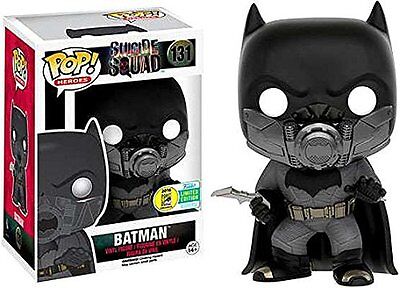
Introduction
The Suicide Squad, a unique team of antiheroes from the DC Comics universe, has captivated audiences worldwide since its inception. With its blend of unconventional characters and thrilling narratives, the Suicide Squad provides a fresh take on the superhero genre. Its relevance in both comic book history and contemporary media is evident, especially given the diverse adaptations that have emerged in recent years, making it an important topic for fans and critics alike.
Overview of the Suicide Squad
The Suicide Squad was first introduced in 1959, but it gained major popularity through its reimagining in the late 1980s and 1990s. The basic premise revolves around a covert team of antiheroes and villains recruited by the government to undertake dangerous missions in exchange for reduced sentences. This morally complex premise allows for exploration of themes such as redemption, loyalty, and the blurred lines between good and evil. The team’s roster has included infamous characters like Harley Quinn, Deadshot, and Amanda Waller, each bringing their own narratives to the ensemble.
Recent Developments
The recent films, including 2016’s *Suicide Squad* and 2021’s *The Suicide Squad*, have helped to rekindle interest in this motley crew. Directed by David Ayer, the 2016 film faced a mixed reception; however, it was significant for introducing a broader audience to the property. Meanwhile, 2021’s adaptation by James Gunn received praise for its character development, humour, and greater narrative cohesion, solidifying the franchise’s place in modern cinema. Streaming series like *Peacemaker* further expand the lore and delves into individual character arcs, making the Suicide Squad more relatable and engaging to viewers.
Cultural Impact and Significance
The Suicide Squad’s unconventional characters have tapped into a growing trend in which audiences find heroes (or antiheroes) who embody flaws and complexities, creating profound connections with fans. The exploration of mental health through characters like Harley Quinn has fostered discussions around stigma and empathy, advocating for a more nuanced view of “villains” and their backstories. In recent comics and adaptations, the Squad has also reflected real-world issues, using its platform to engage relevant social and political themes.
Conclusion
The Suicide Squad continues to evolve, expanding its universe and exploring deeper emotional narratives while remaining entertaining. As new adaptations emerge, it is likely the team will consistently resonate with audiences, making it an enduring topic in pop culture discussions. The antihero phenomenon might serve as a mirror to society, showcasing the multifaceted nature of humanity and prompting audiences to reassess their definitions of heroism. Expect to see more from the Suicide Squad in various forms, as the comic book adaptation trend shows no sign of waning.
You may also like

The Rise of Coco Jones: A Multifaceted Talent

Karol G: Trailblazer in the Reggaeton Music Scene
